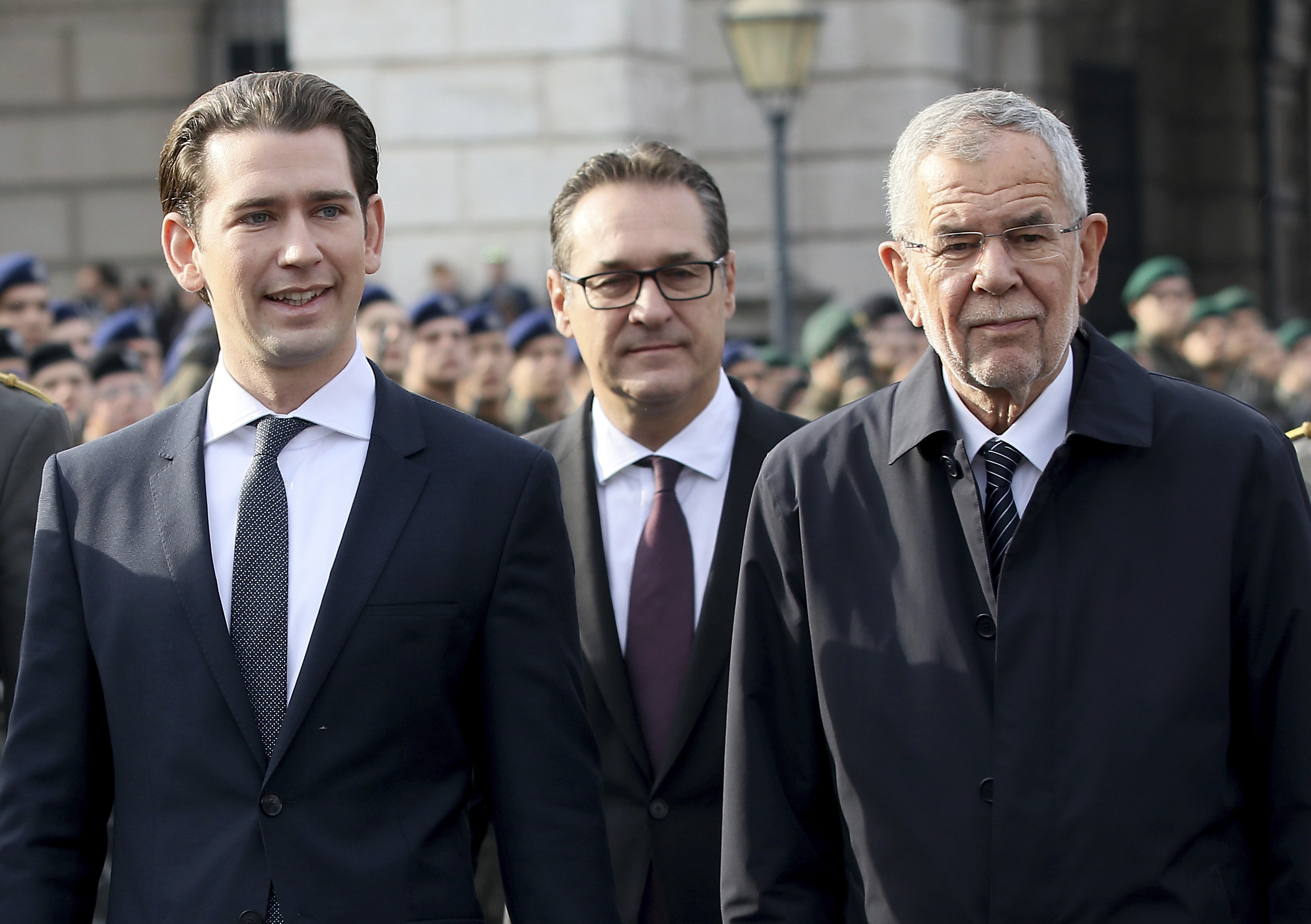
BERLIN (AP) — The Austrian government said Wednesday that it won’t sign a global compact to promote safe and orderly migration, citing concerns about national sovereignty as it joined neighboring Hungary in shunning the agreement.
Conservative Chancellor Sebastian Kurz took office last December in a coalition with the nationalist, anti-migration Freedom Party. Austria currently holds the European Union’s rotating presidency, and Kurz has made curbing unregulated migration a priority.
The Global Compact for Safe, Orderly and Regular Migration , which won’t be legally binding, was finalized under U.N. auspices in July. It is due to be formally approved at a Dec. 11-12 meeting in Marrakech, Morocco.
Kurz and Vice Chancellor Heinz-Christian Strache said Austria won’t sign the document or send an official representative to Marrakech. They cited, among other things, fears about a possible watering-down of the distinction between legal and illegal migration.
“There are some points that we view critically and where we fear a danger to our national sovereignty,” Kurz said, the Austria Press Agency reported.
“Migration is not and cannot become a human right,” added Strache, the Freedom Party’s leader. “It cannot be that someone receives a right to migration because of the climate or poverty.”
In September 2016, all 193 U.N. member states, including the United States under President Barack Obama, adopted a declaration saying no country can manage international migration on its own, and agreed to launch a process leading to the adoption of a global compact in 2018.
But last December, the United States said it was ending its participation in negotiations on the compact, stating that numerous provisions were “inconsistent with U.S. immigration and refugee policies” under President Donald Trump.
In July, Hungary said it would withdraw from the process.
Hungarian Foreign Minister Peter Szijjarto said then that the pact was contrary to his country’s interests because while it had some positive aims, like fighting human trafficking, overall it considered migration an unstoppable and positive phenomenon worthy of support.
The compact has 23 objectives that seek to boost cooperation to manage migration and numerous actions ranging from technical issues like the portability of earnings by migrant workers to reducing the detention of migrants.
Austria’s interior minister, Herbert Kickl, denounced what he called “an almost irresponsibly naive pro-migration tone.”
Kickl contended that “it is simply not clear whether this pact, if we were to join it, would not at some point or somehow influence our body of law, even by the back door.”
Austria’s opposition criticized the decision.
In Brussels, Natasha Bertaud, a spokeswoman for the EU’s executive Commission, said it regrets Austria’s decision and is seeking more details from Vienna.
“We continue to believe that migration is a global challenge where only global solutions and global responsibility-sharing will bring results,” she said at a regular briefing.
EU heavyweight Germany reaffirmed its support for the pact, which foreign ministry spokesman Rainer Breul said is “necessary and important.”



















